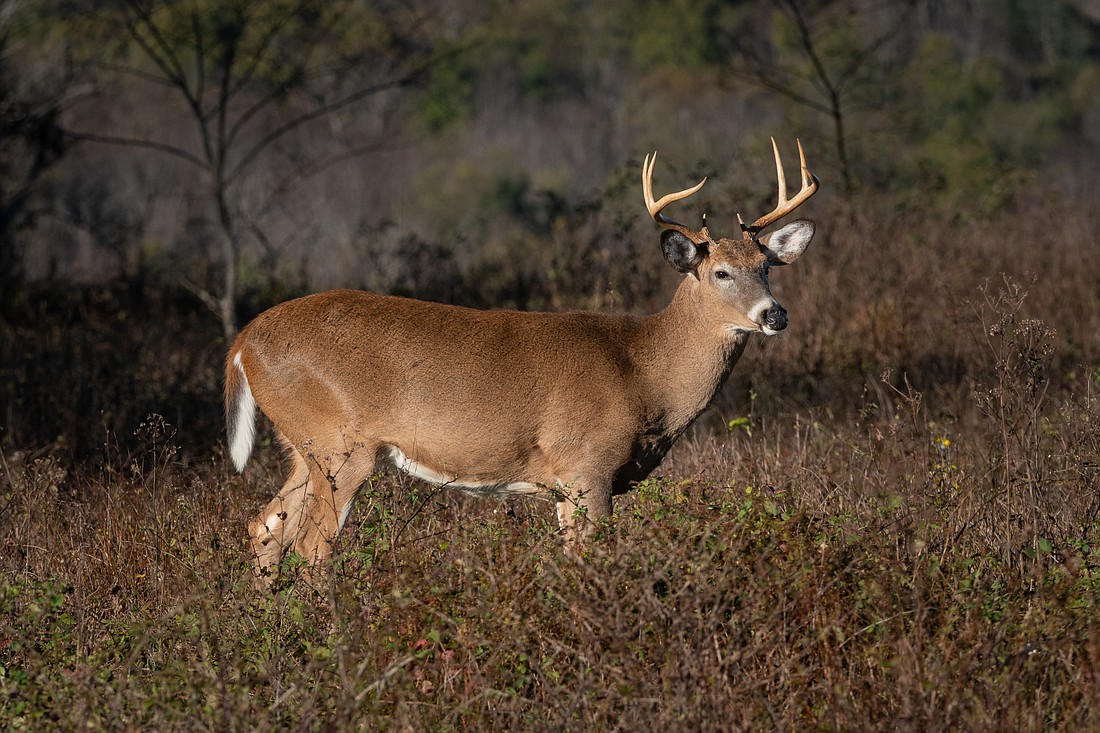- December 15, 2025

Some deer killed during two popular hunting days in December must be tested for a contagious disease fatal to the animals as the state expands efforts to limit the spread of the disease.
The Florida Fish and Wildlife Conservation Commission said Tuesday that deer killed on Dec. 9 and Dec. 10 in most areas of Holmes, Jackson and Washington counties must be tested for chronic wasting disease at one of 21 check stations before being processed for food or going to taxidermists.
“These counties comprise the CWD (Chronic Wasting Disease) Enhanced Surveillance Zone, and the FWC (Fish and Wildlife Conservation Commission) is prioritizing heightened surveillance and regulations within this zone to reduce the potential spread of CWD both within the zone and throughout the state,” Lauren Claerbout, a spokeswoman for the commission’s Division of Hunting and Game Management, said.
The disease is described as similar to mad cow disease, with deer becoming emaciated and often being found isolated and trembling. While not considered harmful to people, the disease can result in death within four months to deer.
The testing details were presented Tuesday during a meeting in the Holmes County community of Bonifay. Another meeting is scheduled Oct. 10 in Marianna in Jackson County.
The commission will try to get as many samples as possible to meet testing goals.
“We can get some deer out of season from road kills. but the majority of our samples will come from hunter-harvested deer,” commission Deer Management Program Coordinator Cory Morea said in Bonifay. “So, it's really important to get out and hunt and provide samples whenever.”
The commission is asking people who see sick, abnormally thin deer, or deer dead of unknown causes to report the finds. Claerbout said it also is asking hunters to bring in deer heads for testing outside of the “check station weekend.”
The commission issued an emergency order after a case of chronic wasting disease was detected in June in a “road-killed” deer in Holmes County. The positive test was the first known case of a deer in Florida having the disease, which has been found in 30 other states including Alabama and Mississippi.
No additional cases have been detected in close to 200 deer tested since the Holmes County case, but wildlife officials expect an increase in deer deaths from the disease. Directives from the commission will be reevaluated after the upcoming hunting season.
Claerbout said the December weekend --- the start of the second phase of the “general gun” season for deer hunting in the Panhandle region that includes the three counties --- “is very popular for deer hunting.”
“We also looked at harvest reporting data from the last few years to determine which weekend would most likely yield the highest number of harvested deer from that area,” Claerbout said. “Since these check stations will be fully staffed, we needed to pick the most effective time to do this to ensure that we’ll be able to collect as many samples as possible.”
Claerbout said the state will also work with taxidermists and processors in the three-county area and provide drop-off freezers for hunters so samples can be collected.
With no simple treatment or vaccine for chronic wasting disease, deer farmers have expressed concern that a single positive test could require the eradication of entire herds, which in some cases represent millions of dollars in investments.
Florida has monitored the issue since 2002, testing about 17,500 hunter-killed, road-killed and sick deer.
In 2021, the state placed certain limits on importing deer carcasses into Florida. People can bring in deboned meat, finished taxidermy mounts and clean hides and antlers.